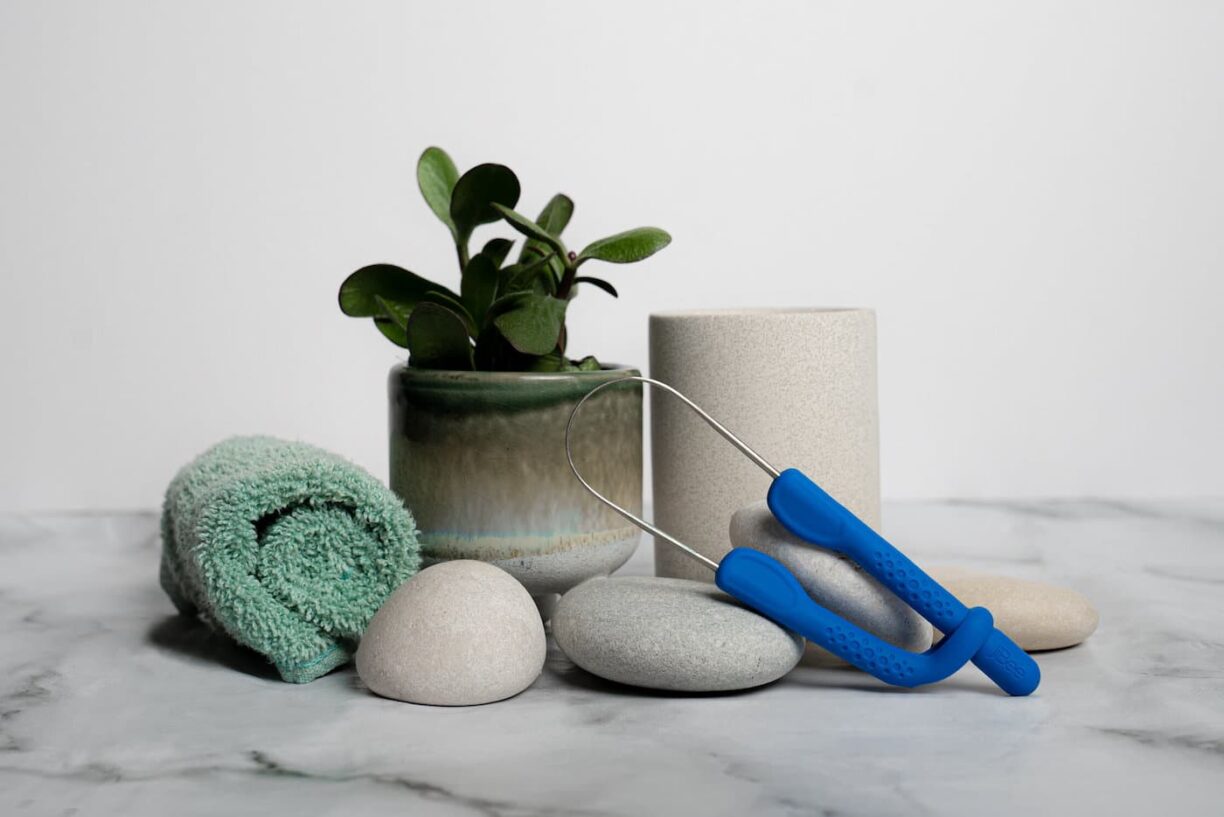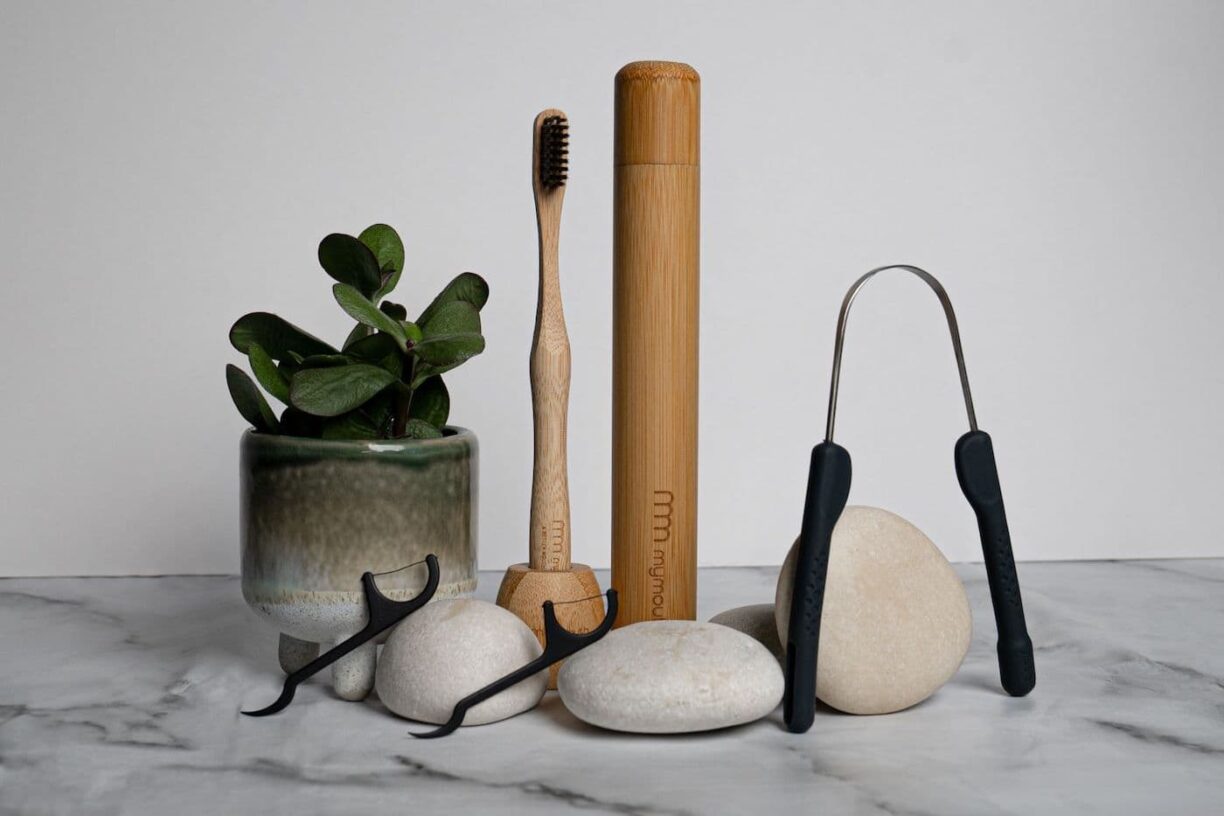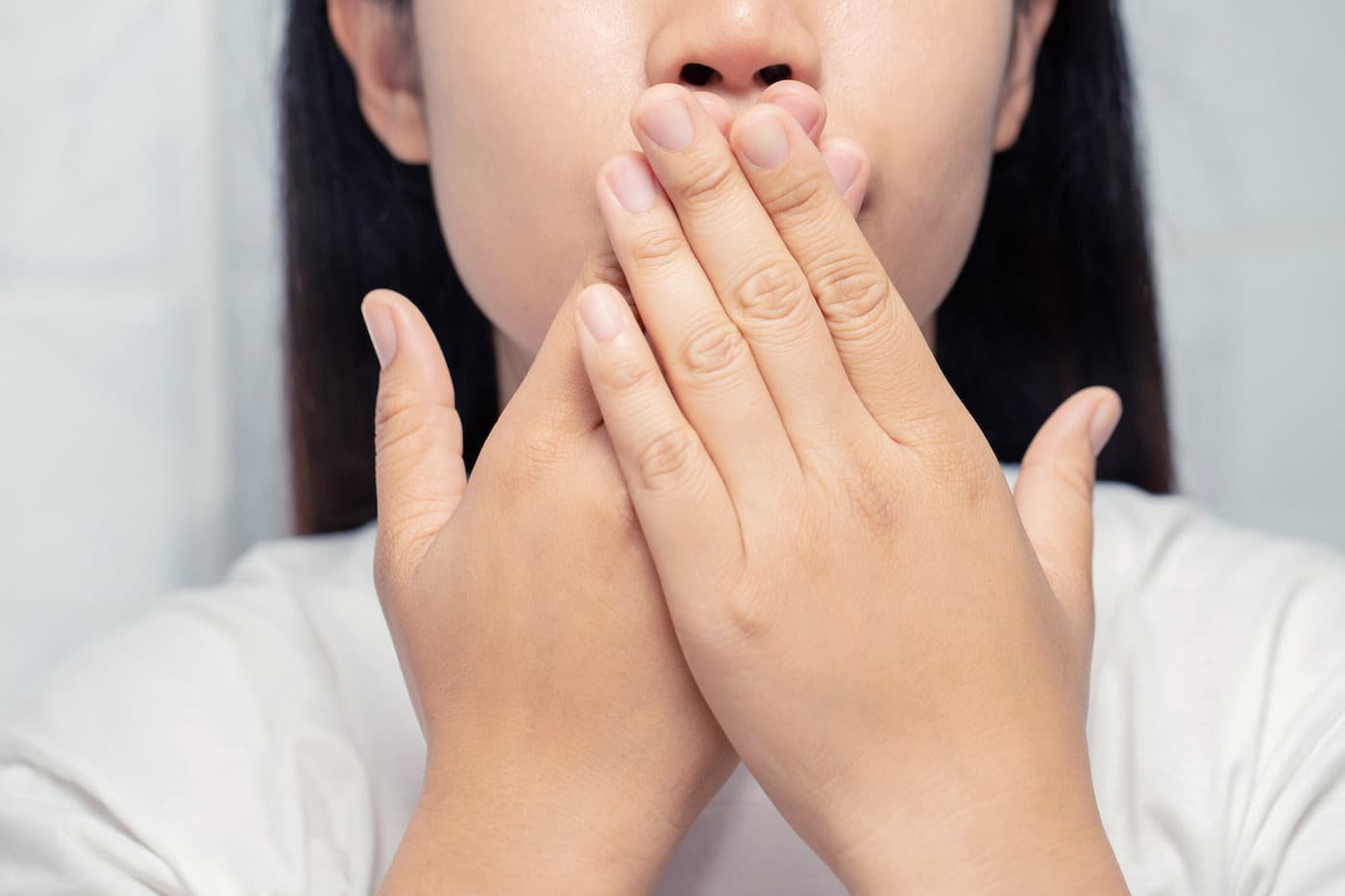Dental professionals are advising consumers to consider multiple mouth hygiene options following the increasing concerns over bad breath as face masks became mandatory during Covid-19.
With bad breath related searches experiencing a 200% increase in the past 12 months, and peaking on the 27th June, it’s clear to see that British people are increasingly concerned about their bad breath following the rules and regulations around mandatory mask wearing.
While face masks are incredibly important for our health and protection during the pandemic, they unfortunately cannot mask the issue of bad breath (halitosis).
However, despite the rising concern over bad breath, a study from the Journal of Clinical and Experimental Dentistry revealed that mask wearing has negatively impacted people’s oral hygiene habits, with toothbrushing decreasing significantly as people are less concerned about their smile aesthetics, including their breath, due to the use of masks.

Dr Viren Vithlani, specialist periodontist at MyMouth leading provider of oral hygiene products, commented on these changing habits, and how steps need to be taken to prevent long term oral health issues from arising.
“We’ve seen an influx of people expressing concerns over their bad breath, so it’s alarming to see that certain people are using mask wearing as a reason for their poor oral hygiene and not visiting their dentist or hygienist,” Dr Vithlani began.
“When you neglect oral hygiene, such as tooth brushing and tongue cleaning, you may be jeopardising your future oral health, and subjecting yourself to issues such as gum disease, cavities and even heart disease, diabetes and in the most extreme of cases, cancer.”
Maintaining good oral hygiene is imperative for overcoming bad breath as a result of wearing masks for long periods of time throughout the day, and fortunately, there are various things you can do to keep your mouth feeling fresh.

How to cure mask breath
Dr Vithlani said: “If you’re someone who needs to wear masks for prolonged periods of time, such as those who work long retail shifts or work in cosmetics and the hairdressing industry, you should enhance your oral hygiene while remembering the basics.”
“Tongue cleaners, can help to clear the build-up of bacteria and debris on the surface of the tongue, working towards eliminating foul odours from the mouth and improving overall oral hygiene.”
Additionally, it is advised to drink plenty of water, as dried saliva can be a huge contributor to bad breath.
According to the British Snoring & Sleep Apnoea Association, 41% of the UK adult population snore, hinting towards the percentage of “mouth breathers” in the UK.
Of course, standard oral hygiene habits such as brushing your teeth twice daily and stopping the use of tobacco products are highly recommended in the battle against bad breath.
There is evidence that during stressful times (such as the pandemic) many have decreased their diet quality and have increased their sugar intake as it has a comforting effect, which will also impact bad breath.
Consequently, the closure of pubs, mental health struggles and the rise of at-drinking has also increased the consumption of alcohol.
Late last year it was reported that almost half of Britons were drinking more as a result of the pandemic.
Sugars, like those from alcoholic drinks will also have an effect on the build-up of a white or yellow tongue coating.
Dr Vithlani added: “The greater the thickness of this tongue coating, the more likely it is for a person to have bad breath, but five gentle strokes of a tongue cleaner can not only remove this coating and reduce bacterial load but will effectively enhance taste sensation.”
Reducing sugar intake and combining these simple hygiene routines into your everyday alongside proper hydration and tongue cleaning should work positively towards achieving a cleaner mouth and subsequently, fresher breath.
For those that wear reusable masks, factoring in regular mask cleaning can also work well to reduce bad odours.
Experienced dental professional Dr Sameet Hindocha from My Online Dentist added: “When you breathe, you expel aerosol which contains bacteria and sulphides (or volatile sulphur compounds) which, if you wear your mask for hours at a time, will inevitably become dirty and rather smelly.
“Make sure to give your mask regular cleanings to avoid this issue.”
Following the Government’s recent lifting of most lockdown measures including social distancing and mandatory mask wearing which happened on the 19th of July, it is expected that two-thirds of adults will still choose to wear masks, such as on busy public transport routes or in crowded supermarkets, and so the above advice remains pertinent to thousands across the UK.
Dr Vithlani said: “There may well be a rise in people wanting to take better care of their oral hygiene when they no longer need to wear masks, particularly throughout the summer months and so it’s important they’re provided with the advice, support and products they need to achieve this.”
With the lift of mandatory mask wearing, what will you be doing to ensure you’re practicing good oral hygiene?





